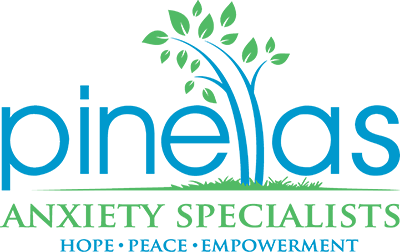Visualization: A Vacation Inside Your Own Home
This is the third in a series of blog posts on relaxation techniques for reducing stress and anxiety symptoms . Please check out the links to learn more about deep breathing and progressive muscle relaxation.When we feel stressed, anxious, or overwhelmed, it’s certainly not uncommon for our mind to race. We may not even know where half the thoughts are coming from, but they seem to be hitting us left and right.We would do just about anything to quiet our minds and have some peace! So we try not to think about the stressful thoughts…. BOOM, they come back stronger than ever.Of course with the mind/body connection, those anxious thoughts lead our body to respond in all sorts of uncomfortable ways. The deep breathing and progressive muscle relaxation techniques discussed in the last two blogs were focused on the body.The hope was that promoting relaxation in the body will also quiet the mind. Again, for some people that is the case, but for others it seems like their mind goes into overdrive when they try deep breathing.Visualization is one of the techniques we can use to both relax the body, but also engage the mind in a way that makes it difficult for those negative thoughts to race through.
Visualization To Reduce Stress
With visualization, our goal is to have you imagine that you are in one of your “happy places.” It can be helpful to have an idea of 2 or 3 of your favorite places where you can feel completely relaxed.For many people it may be the beach, or a mountain retreat, or their own comfy bedroom. It’s important to pick locations that provide you relaxation.Now I wish it was as easy as just thinking of your happy place. But I’m sure you’re thinking that wouldn’t work, and you’re right.For visualization to work, we need to involve all five of our sensory organs. Let’s do a basic anatomy review. Our five senses are touch, sight, hearing, taste, and smell.While we usually just “see” a place when we imagine it, it’s possible to imagine our relaxing place and exactly what all five of our senses would be experiencing if we were actually there. That is how visualization works.
How Does This Reduce Anxiety Symptoms?
Very briefly I want to mention why this works in bringing about relaxation. Our brain is comprised of something like 86 billion nerve cells, or neurons. Every thought we have, and everything our body does is controlled by these tiny little cells.Just reading this sentence has nerve cells telling your eyes to move, your brain to interpret the pixels as letters, and allows you to understand them as English. Each action we take has a certain pattern of nerve cells that get activated.As these neurons fire together more and more often, it makes it easier to engage in the task at hand, which is called learning, or muscle memory for those into sports.If you ever watch Olympic downhill skiing, you’ll notice the skier very focused in the moments before their run. That focus has them visualizing themselves going through the course, successfully navigating every turn and jump.That’s because the same neurons that fire while they are actually skiing the course are activated while they visualize it.When we visualize our relaxing place, what we’re doing is activating those relaxed brain cells that remember how calm you were when you were in that situation.Visualization also has the added benefit of actively engaging your brain, which makes it more difficult for negative thoughts to intrude.
Practicing Visualization
Find a nice comfortable position and take two long, slow deep breaths (continue these throughout).Now think of the happy place you identified and imagine that you are there in this moment.Take a look around and notice the small details of what you can see. Listen to any sounds that might be going on in the moment.Notice if you feel any warmth from the sun, or a breeze, or your favorite soft blanket.Take a big whiff of the air and see if you smell anything in particular. And finally notice any tastes that may be happening. Spend about five minutes focused on slow, deep breaths, and deeply noticing how your five senses are reacting in your happy, calm place. If you're feeling stressed, anxious, or overwhelmed and think that a relaxation technique isn’t enough, and that talking to someone would be helpful, please reach out to me and we will get you started on the path to taking back control of your life. I provide free 30 minute consultations that you can sign up for through the button below, or you can e-mail or call 727-498-1809.

